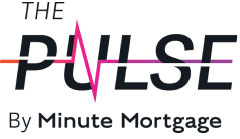First-Time Homebuyer Guide
The time has come. You’re ready to make the step and purchase your first home—Congratulations!
Buying a home can be an exciting journey, but can also feel like a daunting task at times. At Minute Mortgage, we want to help make the journey to homeownership as smooth as possible. Consider this guide to be your Buying a Home 101 course.
Financial Planning for First-Time Home Buyers
Know Your Credit Score
It’s simple: The higher your credit score, the lower your interest rate and mortgage payments will be. A credit score of 740 or higher will get you the best rates and terms and allow you more negotiating power.
Additionally, most lenders require a minimum credit score for mortgage approvals. Your best bet is to have your credit score at least be in the mid-600s. Spend some time taking steps to improve your score if it’s lower than that.
Though it’s no fun having to wait on buying the home you’re dreaming of, you’ll be better off in the long run with a friendlier mortgage rate.
Check out: 6 Ways to Improve Your Credit Score Before Applying for a Mortgage
Plan for all Monthly Expenses
Getting pre-approved for a home loan is one thing. Affording it is another. Remember, just because you got pre-approved for a certain amount doesn’t mean you need to spend that much on a home.
A general rule of thumb is to spend no more than 40%-45% percent of your monthly gross income on total housing costs. Keep in mind, it’s not only the actual mortgage that’s considered here. Other potential recurring costs you need to consider when budgeting include:
- Property taxes
- Private mortgage insurance (PMI)
- Utilities
- Home repairs and upkeep
- Landscaping
- HOA dues
Have Cash Saved for a Down Payment and Closing Costs
Start saving those pennies, as you’ll need to have cash set aside for both the down payment and closing costs. A minimum down payment of 3% is usually required, and putting less than 20% down will likely result in having to pay private mortgage insurance (PMI) each month.
Closing costs can include loan origination fees, appraisal fees, discount points, title insurance and more. Plan for closing costs to total around 3%-6% of the loan amount.
It may be possible to negotiate a deal where the seller pays the closing costs; consult with your loan specialist about this option. Additionally, many mortgage programs allow you to receive a cash gift for the down payment and/or closing costs. Keep in mind, these gift funds have to be trailed and documented. Don’t accept a gift without consulting with your loan specialist and knowing how to document the funds.
Check out: 10 Things Not to Do Before Applying for a Mortgage
Research and Applying for a Mortgage
What Type of Mortgage Is Best For You?
It’s one of the biggest questions every new homebuyer has to consider. Fixed or adjustable rate? A term of 15 or 30 years? Am I getting the best rate?
Our team of experienced loan experts is happy to answer your questions and guide you into the mortgage that best fits your needs.
Get Pre-Approved For a Mortgage
It’s good to get this step taken care of early in the process. It’s beneficial for both you and your real estate agent to know how much home you can afford before the search starts. In fact, many agents won’t agree to show you homes until they know the amount you’re pre-approved for.
Your loan specialist is going to need a number of documents and will pull your credit report to check your score and look for any red flags.
We at Minute Mortgage use state-of-the-art technology to simplify this part of the process. We require fewer documents than traditional lenders and they can all be easily submitted via our website or mobile app. Just snap a pic and submit.
Check out: 6 Reasons to Use Minute Mortgage for Your Home Loan
Questions to Ask Yourself
Before you get to the next couple of steps of hiring an agent and properly beginning your home search, ask yourself the questions below and share the answers with the agent you hire. The honest answers to these will not only help you focus your home search, they’ll also allow your agent to best assist you.
- Why do you want to buy a home?
- What is your price range? How much of a loan were you pre-approved for?
- What is your timeline for buying a home?
- Will the home be financed? If so, how much of a down payment can you make?
- How much are you currently spending on living expenses? How much do you want to spend?
- Who will be your mortgage lender?
- What are your preferred neighborhoods?
- What parts of the home are most important to you (kitchen, living room, master bedroom, yard, etc.)?
- What home features do you most desire (pool, fireplace, new appliances, etc.)?
- What are your deal breakers (must be close to work, have good schools in the area, be on a quiet street, etc.)?
- Does the home have to be move-in-ready or would you buy a fixer-upper?
- How long do you plan to live in the home?
Find a Real Estate Agent
It’s good to have an expert by your side.
An experienced real estate agent can guide you through the homebuying process, and they’ll negotiate on your behalf for the best deal possible. Agents are also an invaluable resource when it comes to making sure the closing process goes smoothly and free of issues.
Be sure to do your homework and find an agent you’re comfortable working with.
- Check REALTOR® review sites and see what others have said about their experience with an agent.
- Ask for referrals from friends and family.
- We encourage you to meet with potential agents one-on-one before hiring them. Ask questions and make sure they’re a good fit for your needs and personality. Shop around and meet with multiple agents before deciding on who you’d like to work with.
The benefits of working with an agent are plenty. Some of the key ways they’ll assist you include:
- Guiding you through and helping you understand every step of the process, making sure you don’t get tripped up anywhere along the way.
- Negotiating the best deal possible and looking out for your interests on the sales contract.
- Connecting you with their large network of trusted vendors and directing you to contractors, appraisers, inspectors, home repair professionals, and more.
- Understanding your market and being an expert on prices in the area, making sure you don’t overpay or miss a great opportunity.
Shopping for Homes
Your finances are in order and you’ve hired the right agent: Now comes the fun part! It’s time to search for your next home.
Online search tools—such as those from HomeSmart, Zillow, and others—are a great way to look for homes filtered by the options and locations you’re looking for. Additionally, your agent will be on the lookout for homes on the MLS that fit the bill and can set up tours of them.
As you’re touring homes, don’t overlook the little details: Making sure lights are working properly; toilets, sinks, and showers are operating as they should; doors and windows easily open and close; and more. An experienced agent will also know exactly what to look for and make sure no stone goes unturned.
This is also your time to research the neighborhood each home is in. Check out the local schools if have children or plan on in the future; see how well maintained the other homes on the street are; how much traffic does the street get; is the home convenient to the places you frequent. These and more need to all be considered.
Make an Offer
After all your searching and research, you’ve found the house you want to make yours. Time to make an offer!
Again, this is where working with an experienced agent provides big benefits. They’ll walk you through each step of the offer process and make sure nothing is overlooked. And while buyers can understandably be emotionally charged at this time, an agent will help you stay level-headed and make sure you pay a fair price.
Your agent will also be very helpful if the offer enters a negotiation stage. This would happen if the seller comes back with a counteroffer, which is common. It’s not just the price of the home that can be negotiated at this point: You can also negotiate for the seller to pay all or part of your closing costs, mortgage loan points, the premium on a home warranty, the costs of needed renovations and more. Be sure to communicate with your agent throughout the negotiation process to make sure they’re fighting for your best interests.
Home Inspections and Appraisal
After the seller has accepted your offer, you’ll finalize your mortgage with your loan vendor. Most lenders will require an appraisal of the home from an independent third-party company before the loan agreement is signed. This is to confirm you’re paying a fair price for the home.
Additionally, if a home inspection wasn’t done before this point, it may be required before signing the final contracts. Check with your real estate agent to confirm if home inspections are required in your area.
Closing Day
This is the day you become the proud owner of your new home! Plan to carefully read and sign a lot of documents this day. After the documents have been signed and sent to your mortgage lender, the seller should get their check within a few days. Then, the keys are yours!


 12 Minute read
12 Minute read



